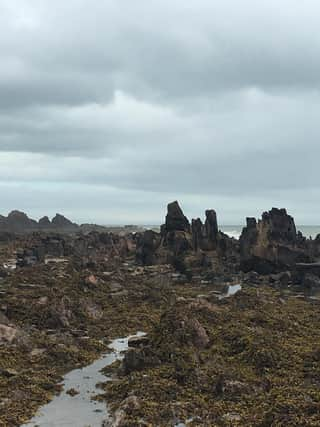When Scotland and England were on different continents


Around 600m years ago, large parts of Scotland used to lie south of the equator in the continent of Laurentia but over millions of years drifted north.
Advertisement
Hide AdAdvertisement
Hide AdIt was around 425 million years ago that these new neighbours came together in what has been described as a “gentle collision”.
But the forces involved in creating this new union were so great they created the Caledonian Mountain belt which may have been comparable in size at the time to the Alps or the Himalayas.
This new landmass was formed as the Iapetus Ocean in the southern hemisphere began to close over around 500 million years ago.
This created a series of continental collisions known as the Caledonian mountain-building event or Caledonian Orogeny.
It was in the lapetus Ocean, as it closed, that the volcanic islands thought to be the foundations of the Central Belt formed.
On the shoreline at Cowie north of Stonehaven, at the eastern tip of the Highland Fault, the impact of these collisions can be seen with sedimentary rocks formed in Laurentia tilting and buckling so that the rocks stand almost at right angles.
It was also in these rocks that a fossil believed to be the remains of the oldest creature known to have lived on land was found.
The one-centimetre millipede which prised out of a siltstone bed is around 428 million years old.
Advertisement
Hide AdAdvertisement
Hide AdIt is the earliest known evidence of a creature living on dry land, rather than in the sea.
A message from the Editor:
Thank you for reading this story on our website. While I have your attention, I also have an important request to make of you.With the coronavirus lockdown having a major impact on many of our advertisers - and consequently the revenue we receive - we are more reliant than ever on you taking out a digital subscription.Subscribe to scotsman.com and enjoy unlimited access to Scottish news and information online and on our app. With a digital subscription, you can read more than 5 articles, see fewer ads, enjoy faster load times, and get access to exclusive newsletters and content. Visit https://www.scotsman.com/subscriptions now to sign up.
Our journalism costs money and we rely on advertising, print and digital revenues to help to support them. By supporting us, we are able to support you in providing trusted, fact-checked content for this website.
Joy Yates
Editorial Director